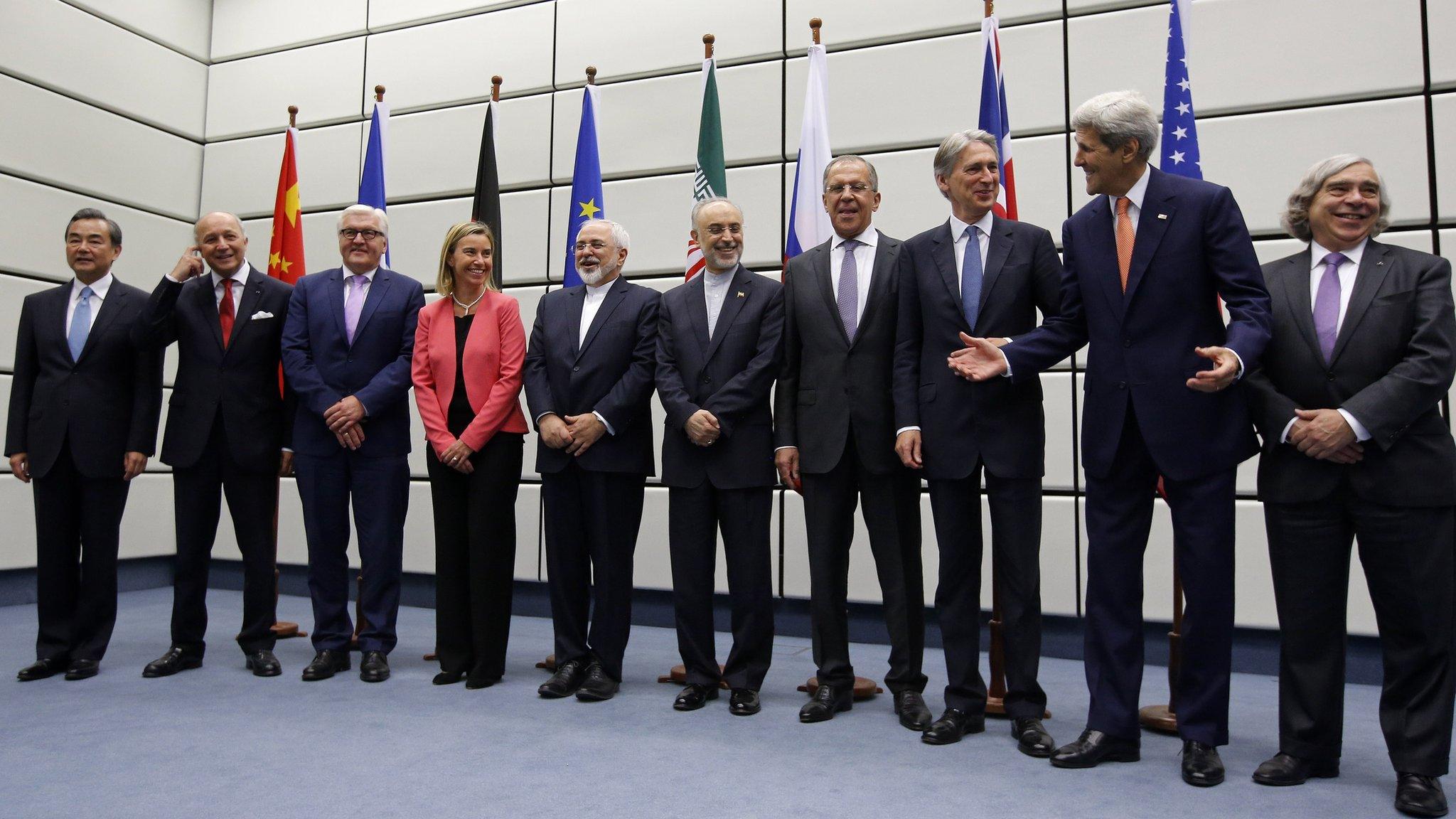Iran's Rouhani warns Trump of 'historic regret' over nuclear deal
- Published
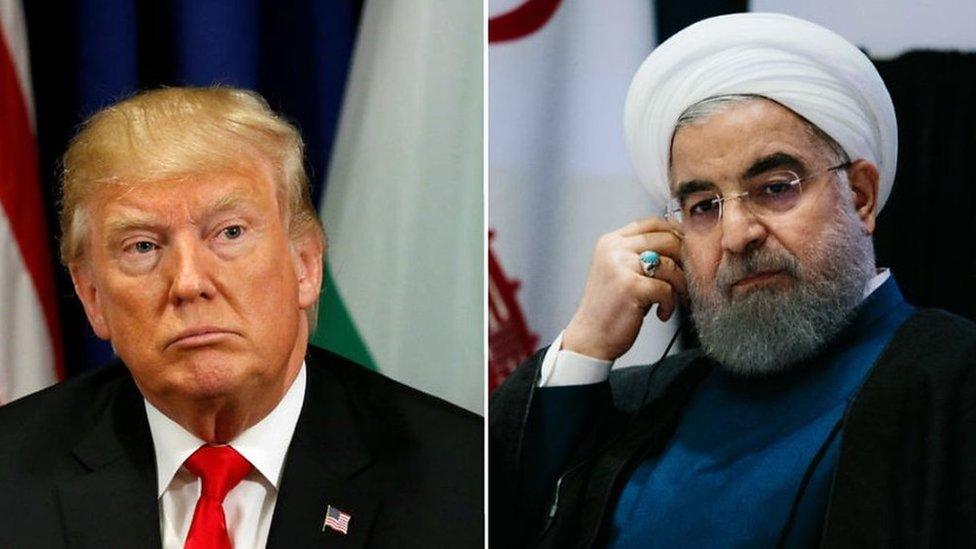
President Rouhani (right) says Iran is ready to "confront" any decision made by President Trump
Iranian President Hassan Rouhani has warned that the US will face "historic regret" if Donald Trump scraps the nuclear agreement with Tehran.
Mr Rouhani's comments come as the US president decides whether to pull out of the deal by a 12 May deadline.
Mr Trump has strongly criticised the agreement, calling it "insane".
The 2015 deal - between Iran, the US, China, Russia, Germany, France and the UK - lifted sanctions on Iran in return for curbs on its nuclear programme.
France, the UK and Germany have been trying persuade the US president that the current deal is the best way to stop Iran developing nuclear weapons.
British Foreign Secretary Boris Johnson is travelling to Washington on Sunday to discuss the matter with White House officials.
Rouhani: The US would regret leaving nuclear deal 'like never before in history'
The UN also warned Mr Trump not to walk away from the deal.
However, he has threatened that the US will "withdraw" from the deal on 12 May - the end of a 120-day review period - unless Congress and European powers fixed its "disastrous flaws".
In remarks carried live on Iranian state television on Sunday, President Rouhani said: "If America leaves the nuclear deal, this will entail historic regret for it."
He warned Iran had "a plan to counter any decision Trump may take and we will confront it".
Iran insists its nuclear programme is entirely peaceful and says it considers the deal non-renegotiable.
What is the Iran nuclear deal?
Last week, Israel revealed "secret nuclear files" which it said showed Iran had run a clandestine nuclear weapons programme before 2003, and had secretly retained the technological know-how, in breach of the agreement.
Iran branded Israeli Prime Minister Benjamin Netanyahu a liar and said the documents he produced were a rehash of old allegations already dealt with by the International Atomic Energy Agency (IAEA), the UN's nuclear watchdog.
But US Secretary of State Mike Pompeo said the documents were authentic and showed the 2015 Iran nuclear deal was "built on lies".
Mr Trump is already unhappy that the current deal only limits Iran's nuclear activities for a fixed period and does not stop the development of ballistic missiles.
He also said it had handed Iran a $100bn (£72bn) windfall that it used "as a slush fund for weapons, terror, and oppression" across the Middle East.
Economic assets frozen by sanctions were returned to Iran under the terms of the deal. Iran has consistently denied US claims that it sponsors militant groups.
A timeline of what Trump's said about the Iran deal
During two days of talks in Washington, Mr Johnson will meet US Vice-President Mike Pence, National Security Adviser John Bolton and foreign policy leaders in Congress.
Earlier this month, he said it was important to keep the deal "while building on it in order to take account of the legitimate concerns of the US".
On Sunday, Mr Netanyahu again spoke out against Iran, saying it was better to confront Tehran sooner rather than later.
Addressing a cabinet meeting, he accused Iran of supplying advanced weapons to the Syrian government that posed a danger to Israel.
He added: "We are determined to block Iran's aggression against us even if this means a struggle. Better now than later."
- Published6 May 2018
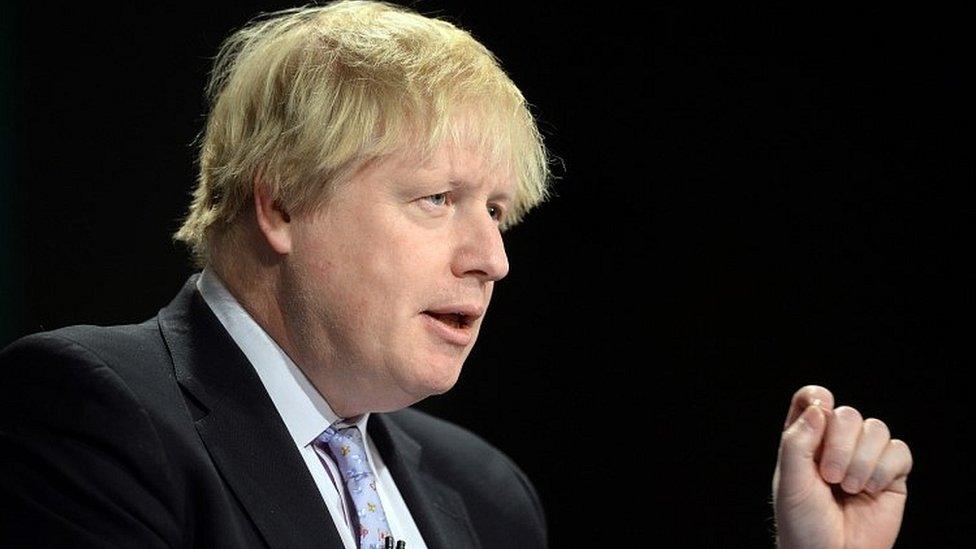
- Published29 April 2018
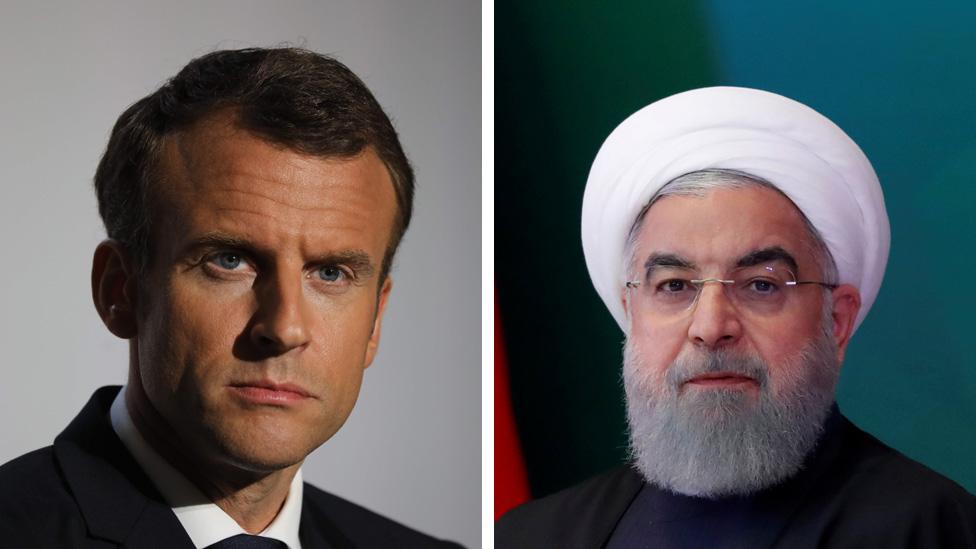
- Published1 May 2018
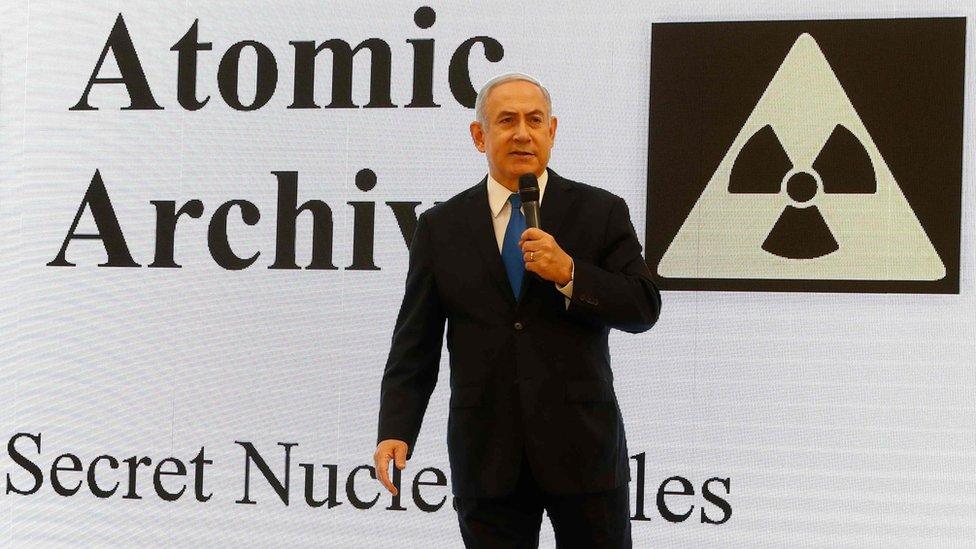
- Published21 May 2018
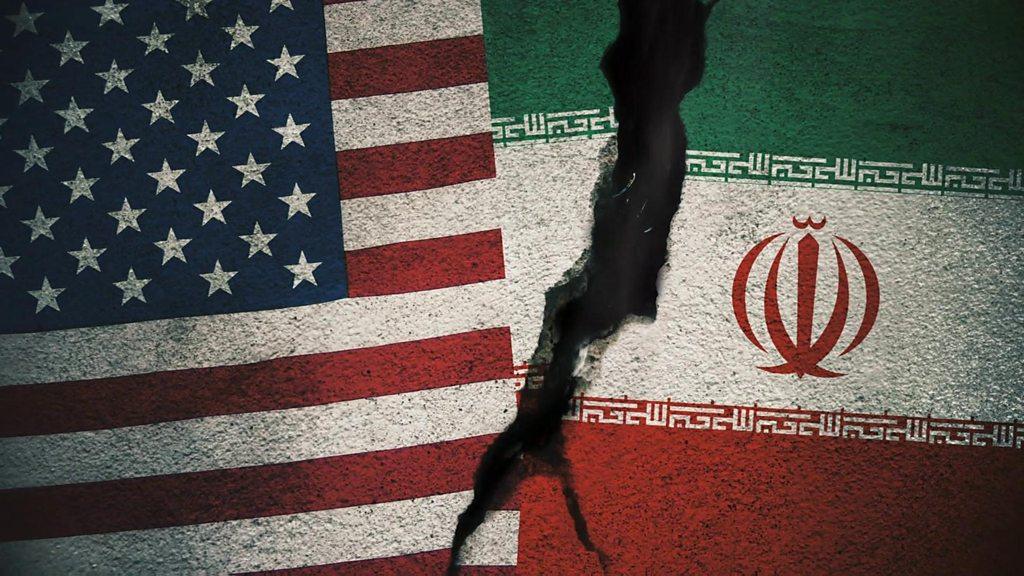
- Published7 August 2018
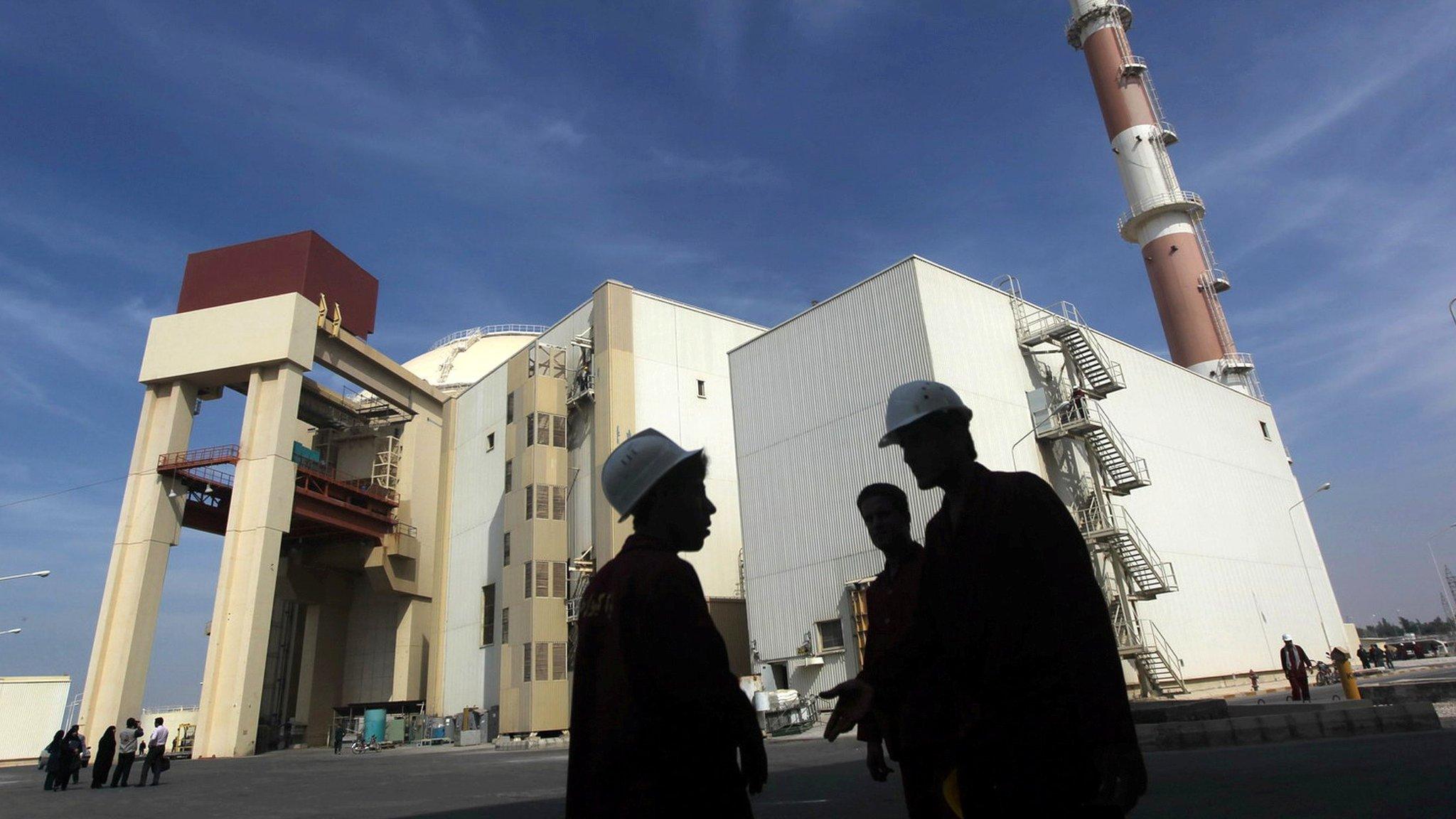
- Published3 May 2018
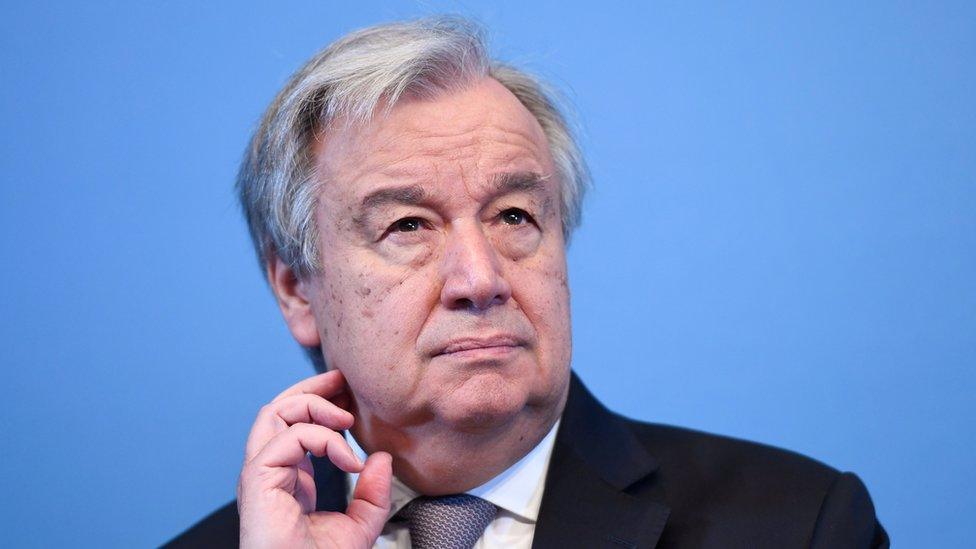
- Published1 May 2018

- Published23 November 2021
